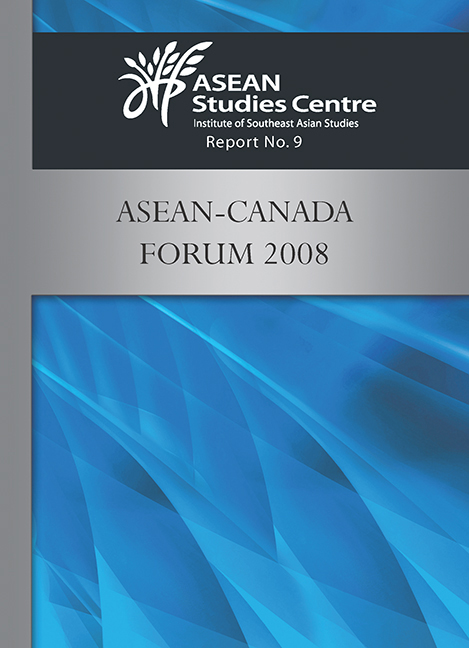Book contents
- Frontmatter
- Dedication
- Contents
- Introduction
- I Regional Economic Integration: ASEAN and Canadian Perspectives
- II Background Papers
- 1 AFTA–NAFTA: Trade and Investment Issues
- 2 Trade and Investment Issues in ASEAN Economic Integration
- 3 Institutional Development in ASEAN
- 4 Governance Issues in NAFTA
- 5 Different Approaches to Dispute Resolution under ASEAN
- 6 Dispute Resolution under NAFTA: Evolution and Stagnation
- 7 Winners and Losers in ASEAN Economic Integration: A Perspective from Vietnam
- 8 Winners and Losers in International Economic Integration: The Distributional Effects of NAFTA
- 9 Cross-border Labour Migration in ASEAN: Issues and Challenges
- 10 Labour Market Integration within NAFTA
- Annex I: Programme of the Forum
- Annex II: List of Participants
- Annex III: Rules-based Governance
4 - Governance Issues in NAFTA
from II - Background Papers
Published online by Cambridge University Press: 21 October 2015
- Frontmatter
- Dedication
- Contents
- Introduction
- I Regional Economic Integration: ASEAN and Canadian Perspectives
- II Background Papers
- 1 AFTA–NAFTA: Trade and Investment Issues
- 2 Trade and Investment Issues in ASEAN Economic Integration
- 3 Institutional Development in ASEAN
- 4 Governance Issues in NAFTA
- 5 Different Approaches to Dispute Resolution under ASEAN
- 6 Dispute Resolution under NAFTA: Evolution and Stagnation
- 7 Winners and Losers in ASEAN Economic Integration: A Perspective from Vietnam
- 8 Winners and Losers in International Economic Integration: The Distributional Effects of NAFTA
- 9 Cross-border Labour Migration in ASEAN: Issues and Challenges
- 10 Labour Market Integration within NAFTA
- Annex I: Programme of the Forum
- Annex II: List of Participants
- Annex III: Rules-based Governance
Summary
The first priority for a … country seeking to achieve sustainable economic development in the twenty-first century is to practice good economic governance
Introduction
Governance structures are necessary to manage the increasing economic interdependence of economies across the North America region, and to reduce its negative effects. As a mid-size economy, the existence of a rules-based, rather than a power-based trading system is important to Canada's ability to effectively engage in the international economic system. Canada's trading relationship with the United States and Mexico is largely governed by the North American Free Trade Agreement (NAFTA), which governs the economic relations among these three countries. This paper explores some of the governance issues raised by NAFTA. It commences by looking at some of the governance issues which had an impact on the enactment and implementation of the agreement, namely the constitutional issue, and issues regarding the form and extent of the cooperation. It then discusses some of the governance issues raised by NAFTA — the delegation deficit, the question of legal personality, issues raised by the dispute settlement mechanisms within NAFTA, and “social” governance within the NAFTA framework. The paper concludes with a note on the over-riding role of government, and “softer” governance outside the agreement itself.
The Constitutional Issue
As a treaty, NAFTA has no legal force in Canadian law unless implemented by appropriate legislation — a treaty does not have direct application in Canada. Canada is a federal state: under the British North America Act, which established Canada, the jurisdiction to legislate is divided between the federal government and the provinces/territories.
- Type
- Chapter
- Information
- ASEAN-Canada Forum 2008 , pp. 63 - 86Publisher: ISEAS–Yusof Ishak InstitutePrint publication year: 2010



